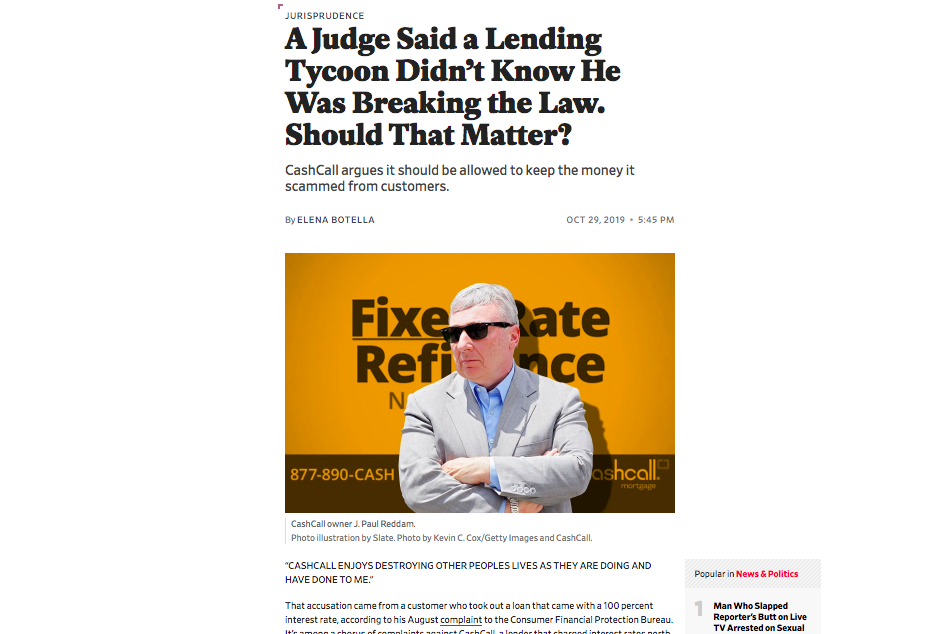For Slate, I wrote about CashCall vs. CFPB, a case where a subprime lending tycoon systematically broke laws of states like Virginia, New York, and North Carolina that make it illegal to charge sky-high interest rates. In most states with anti-usury laws, if you give out an illegal loan, the borrower isn’t obligated to pay any of the loan back: therefore, the Consumer Financial Protection Bureau argued that CashCall should have to refund all the interest it collected to consumers as restitution. CashCall argued it didn’t realize it had broken any laws (lol…), and judges seem to have found this argument persuasive.
-
-
Are credit card rewards even good for consumers?
Earlier this week, the Wall Street Journal reported that merchants like Home Depot, Target, and Amazon are becoming increasingly frustrated with the high fees they pay to accept rewards credit cards, and are seeking relief from the courts or through negotiations with Visa and Mastercard. Particularly, merchants are looking for the networks Visa and Mastercard to end their ‘honor all cards’ rules, which say that if you accept any Visa credit card you need to accept all Visa credit cards, and ditto with Mastercard. Today, if you spend $100 at a large grocery store, Visa would charge the store a $2.20 processing fee if you used a top-tier rewards credit…

